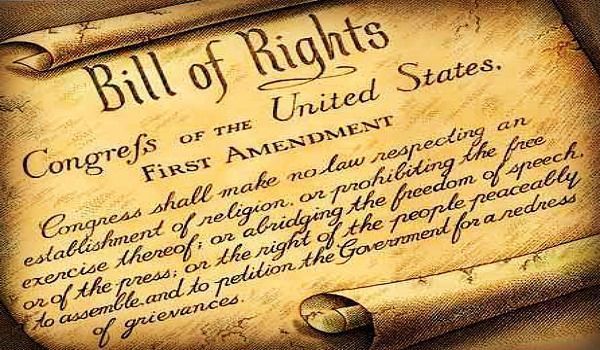Nov 15 2019
Ohio Student Religious Liberties Act of 2019
 The Ohio State House recently passed a revised education bill, now on its way to the state senate, that includes some concerning language. Here is the relevant passage:
The Ohio State House recently passed a revised education bill, now on its way to the state senate, that includes some concerning language. Here is the relevant passage:
Assignment grades and scores shall be calculated using ordinary academic standards of substance and relevance, including any legitimate pedagogical concerns, and shall not penalize or reward a student based on the religious content of a student’s work.
This is a wonderfully ambiguous wording, which I think is a feature, not a bug. It mirrors other parts of the bill which likewise sound superficially reasonable, but there is every reason to suspect has a clear purpose. The big question is – what does it mean that you cannot penalize a student for the religious content of their work? Does that mean they can say in a science class that the Earth is 6000 years old? Can they submit a project on history about Noah?
This is an extension of a strategy that creationists have been using in recent years. They are pushing for carefully crafted laws that sound like they are just promoting freedom, but are specifically designed to provide cover for teachers who want to introduce creationist materials in their classroom. Alternatively, under the guise of “standards” they can introduce laws carefully crafted to provide justification for not admitting evolution or climate change into the classroom.
These laws have to be viewed very much in their political context. Also, their impact will largely be determined by how they are enforced. Of course, if you know ahead of time how they are going to be enforced, because they were specifically crafted for that purpose, they are really stealth laws hiding under coy language.
The bigger context here is that Constitutional protections were crafted in part to protect the minority from the tyranny of the majority. But at the same time we are a democracy. So we need to constantly maintain a delicate balance between democratic freedoms and individual liberty. These are not the same thing – again, because a majority can use democratic power to limit the liberty of individuals in the minority. This also means that laws that sound like they are about promoting freedom are really about empowering the majority to impose their will on the minority – to weaken those Constitutional protections.
In the end I think this is what this bill is about – to weaken the Constitution protections of the separation of church and state in the guise of religious liberty. Such measures always seem to be promoted by those in the religious majority. It’s easy to say, let’s all be equal, when you are in a strong majority – 73% of Ohio residents identify as Christian, and only 4% as non-Christian faiths, and 22% unaffiliated.
The worst-case scenario, which is a completely reasonable concern, is that this bill (if it becomes law, which is almost certainly will) will allow for students to answer science questions incorrectly but argue that they cannot be marked wrong because they were expressing their religious beliefs. A teacher might prevent this conflict by wording assignments and test questions carefully – “according to evolutionary theory,” or “according to the prevailing opinion of geologists.” In fact, this is a good way around this entire conflict, between personal religious faith and science instruction in public schools. Students don’t need to profess belief in any scientific theory or even established fact. They just have to demonstrate that they know and understand it. That is the reasonable compromise. You can demonstrate understanding of the science of evolutionary theory without professing to believe it, or denying your religious faith.
But this law was written with the full knowledge that many teachers in Ohio are Christian and even creationists. Ohio has a history of letting creationist content slip into their schools, despite not being on the curriculum. Because of the First Amendment, creationists cannot directly introduce religious content into public school, nor ban offending science such as evolutionary theory. So they are forever probing for backdoor methods of hampering the teaching of evolution, or allowing their religious faith into the public school. This bill can only be understood in the context of this history. Other sections of the bill would seem to allow for a student group dedicated to promoting creationism on public school grounds, and using public school resources.
Hopefully this bill will get the sunlight required to expose this strategy. Usually I would also hope for a short path from such laws to the Supreme Court, but with the current make up of the court this is very risky. The Supreme Court has been the last line of defense against creationist violations of the First Amendment, but that line of defense may have crumbled.






